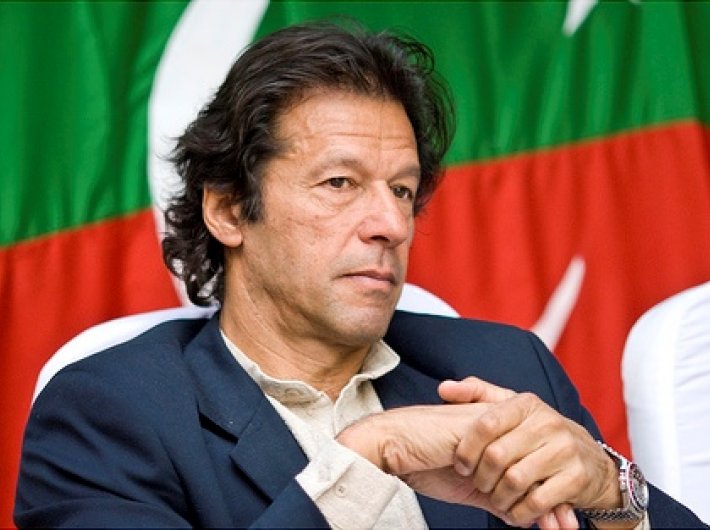Pak PM’s tweets read like rehash of outbursts of a section of India's intelligentsia
An unintended consequence of the inversion of Article 370 and the division of the state of Jammu and Kashmir into two union territories is the curious revival of Pakistan’s interest in Indian history and sociology.
For the first time in decades, a Pakistan prime minister made the Rashtriya Swayamsevak Sangh (RSS) part of the popular discourse in that country when Imran Khan vented against it with profound misunderstanding of its history and intent — likely informed by the Left-liberal narrative in India.
Anguishing over the growth of the RSS' “Hindu supremacist” ideology, he painted a dark picture of how it is set to not only ruin the minorities in India and the subcontinent, but also poses a threat to the world. “India has been captured, as Germany had been captured by Nazis, by a fascist, racist, Hindu supremacist ideology and leadership,” he tweeted.
If you replay the words in your mind, Imran will sound no different from any of the Left-liberal Indian intellectuals who have been writing on the growth of the RSS-BJP combine from the prism of their own ideology. In essence, most of these tweets appear to be emanating from the understanding of the Sangh Parivar by a section of Indian intelligentsia that has developed a pathological distaste for prime minister Narendra Modi and the RSS. Imran’s expressed fondness for the India of Mahatma Gandhi and Jawaharlal Nehru blurs the distinction between him and the likes of the Congress’ Mani Shankar Aiyar.
Imran’s prowess on the cricket field and his philandering are well documented facts of his life. But he has never been known for his love for India’s modern history and sociology. His intellectual dilettantism is germane to the catch-22 situation in which he is trapped after the Modi government gave up the policy of trying to reason with and appealing to Pakistan’s good sense to stop terror. Far from it, Modi has begun redefining the contours of the India-Pakistan relationship.
Gone are the days when a terrorist strike in India would prompt the political leadership to make empty noises about retribution, but end up bleating before the big powers to prevail upon Pakistan to end its covert war to bleed India by a thousand cuts. Whether it was the Uri attack or the Pulwama one, the Indian government replaced the usual sound and fury routine with firm action, first across the LoC and then deep inside Pakistan. While Pakistan could dismiss the surgical strike as “hogwash”, it could not do so in the event of the Balakot air strike. For the first time, Pakistan was forced to bear the cost of its indiscretions.
In the Indian political establishment, no one realised it better than Modi that it would be futile to listen to the sweet-talking politicians of Pakistan. Atal Bihari Vajpayee and subsequently Manmohan Singh tried their luck with Benazir Bhutto, Nawaz Sharif and later with General Pervez Musharraf. In his first innings, Modi too invested heavily in building personal chemistry with Sharif and his family. But he soon realised Sharif's limitations and that he was, like all prime ministers before him, a mere puppet in the hands of the Pakistan army. Since then, Modi has been consistently ignoring fulminations of the Pakistani political leadership and its disingenuous entreaties for talks. Instead, he hit where it hurt the most: The Pakistan army's pride.
It is against this background that the inversion of Article 370 (using the very article that set Jammu and Kashmir apart from the rest of India to nullify its special status) and the division of the state into two union territories came as a bolt from the blue for Pakistan. Nobody had anticipated how swiftly and radically the Modi government would alter the nature of the Jammu and Kashmir imbroglio. The reading down of Article 370 as an ineffectual relic of the Constitution is consistent with the BJP's decades-old position, but Modi's move to kill it in a flash unnerved Pakistan as much as his political detractors in India.
Those who enjoyed a virtual monopoly over defining the ‘idea of India’ underestimated Modi's political will and his prowess for legislative manipulation. They had bargained for Modi to do no more than to tinker with the situation rather than do anything so transformative as to strike at the very core of the issue.
The problem with the Pakistani establishment – army, political leadership and bureaucracy – is that its understanding of India is largely based on a tendentious and erroneous reading of the situation by a section of Indian intelligentsia and its political patrons. Except for a few in Pakistan, there is hardly a scholarly attempt in Pakistan to understand the evolution of post-Independence India. A degenerated political culture substantially vitiated by the military by infusing a jihadi mindset, Pakistan's reconciliation with reality is not only difficult but nearly impossible.
So it comes as no surprise to read Imran's tweets that read like a rehash of outbursts of a section of India's intelligentsia whose inadequacy in understanding Modi and his politics is quite glaring. For the first time, Pakistan is intellectually grappling with issues like RSS, Veer Savarkar, MS Golwalkar; abracadabra for nearly 99.99 percent of Pakistanis. It is a small feat to persuade even a handful of rulers of Pakistan to talk about the RSS and Hindutva. This single contribution of the inversion of Article 370 cannot be undermined.
[This comment has appeared on FirstPost.com]

